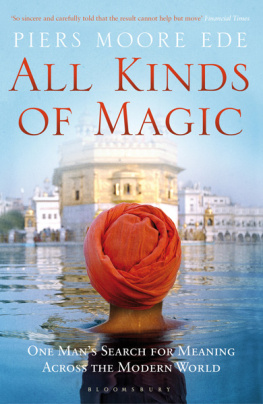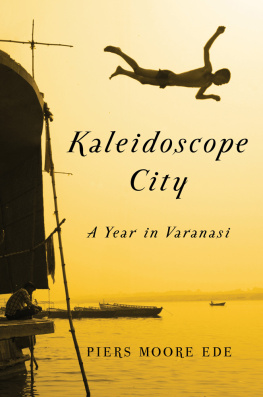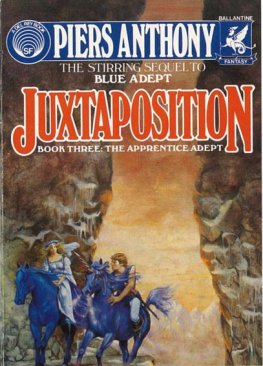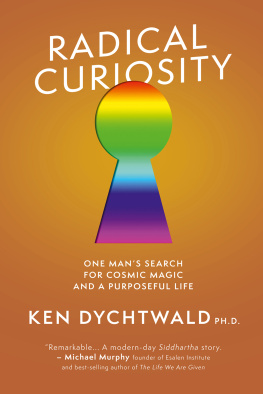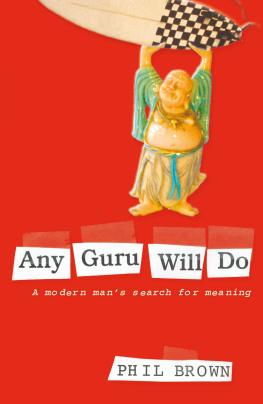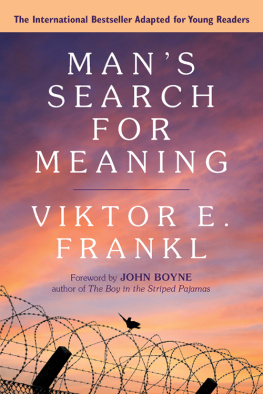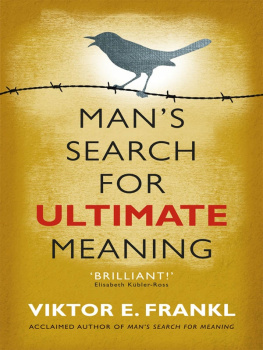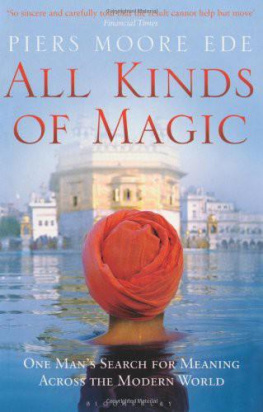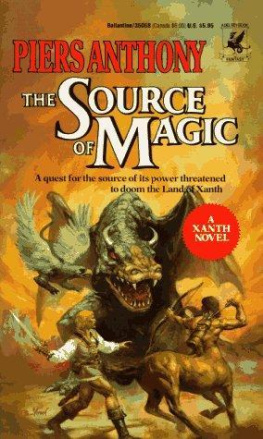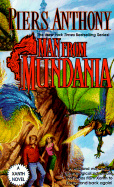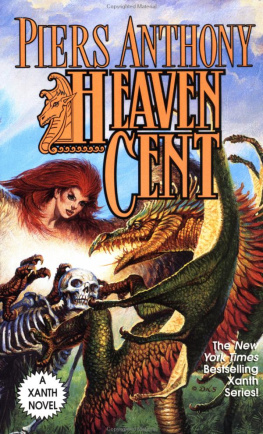Piers Moore Ede - All Kinds of Magic: One Mans Search for Meaning Across the Modern World
Here you can read online Piers Moore Ede - All Kinds of Magic: One Mans Search for Meaning Across the Modern World full text of the book (entire story) in english for free. Download pdf and epub, get meaning, cover and reviews about this ebook. year: 2011, publisher: Bloomsbury UK, genre: Religion. Description of the work, (preface) as well as reviews are available. Best literature library LitArk.com created for fans of good reading and offers a wide selection of genres:
Romance novel
Science fiction
Adventure
Detective
Science
History
Home and family
Prose
Art
Politics
Computer
Non-fiction
Religion
Business
Children
Humor
Choose a favorite category and find really read worthwhile books. Enjoy immersion in the world of imagination, feel the emotions of the characters or learn something new for yourself, make an fascinating discovery.
- Book:All Kinds of Magic: One Mans Search for Meaning Across the Modern World
- Author:
- Publisher:Bloomsbury UK
- Genre:
- Year:2011
- Rating:4 / 5
- Favourites:Add to favourites
- Your mark:
- 80
- 1
- 2
- 3
- 4
- 5
All Kinds of Magic: One Mans Search for Meaning Across the Modern World: summary, description and annotation
We offer to read an annotation, description, summary or preface (depends on what the author of the book "All Kinds of Magic: One Mans Search for Meaning Across the Modern World" wrote himself). If you haven't found the necessary information about the book — write in the comments, we will try to find it.
All Kinds of Magic: One Mans Search for Meaning Across the Modern World — read online for free the complete book (whole text) full work
Below is the text of the book, divided by pages. System saving the place of the last page read, allows you to conveniently read the book "All Kinds of Magic: One Mans Search for Meaning Across the Modern World" online for free, without having to search again every time where you left off. Put a bookmark, and you can go to the page where you finished reading at any time.
Font size:
Interval:
Bookmark:
Many thanks to Peter Straus and Jennifer Hewson at RCW. To Helen Garnons Williams and Erica Jarnes at Bloomsbury for their brilliant editing and support. To Rosemary Davidson for picking up on the idea in the first place. To the Arts Council and the Royal Society of Literature for their invaluable funding. To the numerous kind people who helped me in India, Turkey and South America: Phil and Juliet at the incomparable Yoga Magic, my home away from home; Yogi Ajay Menon and family in Varanasi; all at the Oriental Guesthouse in Ladakh; Katie Silcox; Simon Hayes of Senderos and Kate Rupal; Prabir Ghosh and Sumitra in Calcutta; Dr Mahmud Erol Kilic; and many others... In the UK to my family for their unflagging patience and support, to George Festing likewise. A humble Namaste and a big hug to my wife Lucy for everything else and beyond.
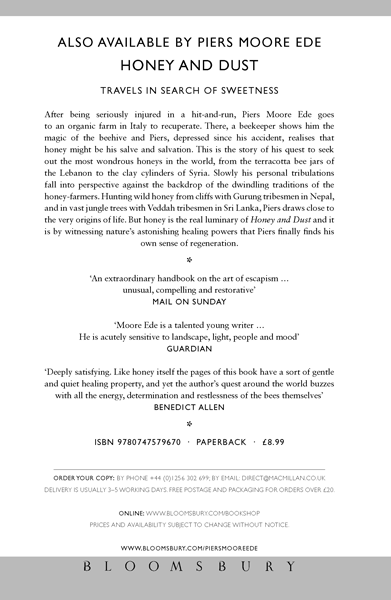
If the modern world is experiencing a collective re-enchantment, then there can be few things more illustrative of that fact than the astonishing renaissance of interest in the poet Rumi. During the 1990 s a number of articles proclaimed him the most popular poet in the world, and a translation of his works in America sold half a million copies: extraordinary figures for any poet, placing him second only to Shakespeare.
But who was Mawl n Jal l al-D n Muhammad Balkh (or Rumi, because of the many years he lived in the Seljuk Sultanate of Rm, in Asia Minor)? And why should a Muslim poet of the thirteenth century continue to speak with such intelligibility to the world seven centuries after his death? Donna Karan has used recitations of his poetry as a soundtrack to her catwalk shows, while Hollywood director Oliver Stone is reputedly keen to make a biopic of the mystics life.
All of this would be extraordinary in the best of times. But that Rumis popularity should soar in a post- / world says more still. He was born in Afghanistan, then in the eastern territories of ancient Persia, and his poems are almost exclusively focused on our human relationship with God. On the face of it this should make him almost unsellable, and yet, if anything, his poetry became more popular after the destruction of the Twin Towers. Something in the verses transcends all creeds, but more than that, it offers a path to understanding mystical experience, with its clear metaphors of transcendence. I loved them from the first.
My own introduction to Rumi came during my university years, when I discovered a translation by Coleman Barks in a second-hand bookshop. The poem that caught my eye flipped my expectations like a kind of judo hold. I may even have checked the back cover again, just to confirm that this was indeed an Islamic mystic writing the better part of a millennium ago. It sounded absolutely contemporary, speaking directly of my own life. Beyond the aesthetic experience, there were gleaming insights into the spiritual process: how to see things as they really are .
Soul drunk, body ruined, these two
sit helpless in a wrecked wagon.
Neither knows how to fix it.
And my heart, Id say it was more
like a donkey sunk in a mudhole,
struggling and miring deeper.
But listen to me: for one moment,
quit being sad. Hear blessings
dropping their blossoms
around you. God.
I bought the book and soon learned that Rumi was a Sufi and that Sufism was the mystical branch of Islam. Again this confounded my expectations: I hadnt known that Islam, with its emphasis on the words of the Prophet, allowed for mysticism. Sufi, I discovered, was the word given to the early Muslim ascetics, because of the simple cloaks they wore, made of f or wool. Like the Hindu yogis, they felt that paradise could be experienced in the midst of life, by entering a divine state. They sought to experience fitra meaning innate human nature a state of complete unity with the world around them, and therefore with Allah. It all sounded remarkably like Buddha nature or moksha , as well as suggesting parallels to the Quaker belief in the inner light of the soul.
Rumi quickly became a part of my life, and his books frequent stowaways in my backpack. His mystical journey, above all, was expressed in the form of love. Where Buddha talked of embracing emptiness, Rumi talked of the beloved or the friend. Whereas Buddhism can occasionally appear daunting to an outsider, Sufism is readily accessible to all. Rumis poems often compare the relationship of the seeker to God with that of a lover, and are concerned, above all, with opening the heart.
Inside this new love, die
Your way begins on the other side
Become the sky
Take an axe to the prison wall
Escape
En route through modern Delhi by rickshaw, I saw the signs of the new India everywhere. On the edge of Khan market, a gleaming Barista coffee shop, Indias answer to Starbucks, offered frothy cappuccino to Delhis middle classes for approximately fifteen times the price of a roadside chai. Four-hundred-year-old minarets protruded above serpentine flyovers, polished SUVs roared past men on juddering bicycles. In the papers that week had been news that Delhi was to rid itself of its traditional vendors of street food, now considered unhygienic: an act which was to put an estimated million people out of work. Thousands of jhuggis (slum houses) were being bulldozed along the Yamuna Pushta (a stretch of land along the River Yamuna that trickles through Delhi), leaving an estimated , people homeless.
With the Commonwealth Games approaching in 2010 , Delhi is anxious to promote a new image of India to the world, and the papers are full of homilies by politicians on the world-class city they are creating from the ashes. Few articles, however, address the human cost of this modernisation or consider the catastrophic effects of the changes on the citys poor who number a third of the total population. One government plan proposed to jail the citys beggars for the duration of the Games, so that foreign visitors are not unduly distressed.
Entering Delhis Old Quarter, one is for now at least returned to an older mode of being. Here there are no shopping malls or multiplexes, but an ancient, distinctly Eastern city, full of the sights and sounds of a bygone world. Its a frenzied mass of bazaars, open-air butchers, hand-painted Bollywood posters, sweating bodies, peripatetic farmyard animals and monkeys, as well as startling olfactory delights and disasters.
For a long time, its been my favourite part of the city. As with much of the old world, it reveals its secrets warily. If the new world gives everything away in a glance, the former works in subtleties and shadings, demanding a little trust before opening its arms. One can wander for an hour in the shadowy back streets subsumed in grime, before glimpsing, in a beam of sunlight, a mother washing her child, a man throwing offal to a flock of vultures, or a greybeard tracing his forefinger over the elegant gilt lettering of a Koran.
On this morning I walked for some time, beginning at a stand of gnarled trees in Nizammudin east, then proceeding through an area which appeared increasingly at odds with the city I had come from. By my guesthouse near Connaught Circus, a gated community protects its inhabitants from the encroachments, visible or psychological, of the Indian poor. Here the medieval lanes kept no one out; its children spun wooden tops under a pacific sky, and its food was butchered, cooked and, by the look of things, sometimes reared, in the streets where people lived.
Not far from the shrine, the roadside stalls began to take on more of a devotional aspect: CDs of qawwali (Sufi devotional music), handfuls of fragrant rose petals, technicolour icons of Saint Hazrat Nizammudin, books, video cassettes, bundles of heady incense and chadurs cloths with which to cover ones head respectfully. Some stallholders offer nothing but a series of empty boxes. For a nominal fee one can leave ones shoes in safe keeping, before continuing to the shrine barefoot. I liked these: as business plans go, an empty box seems like a stroke of genius indeed.
Next pageFont size:
Interval:
Bookmark:
Similar books «All Kinds of Magic: One Mans Search for Meaning Across the Modern World»
Look at similar books to All Kinds of Magic: One Mans Search for Meaning Across the Modern World. We have selected literature similar in name and meaning in the hope of providing readers with more options to find new, interesting, not yet read works.
Discussion, reviews of the book All Kinds of Magic: One Mans Search for Meaning Across the Modern World and just readers' own opinions. Leave your comments, write what you think about the work, its meaning or the main characters. Specify what exactly you liked and what you didn't like, and why you think so.

